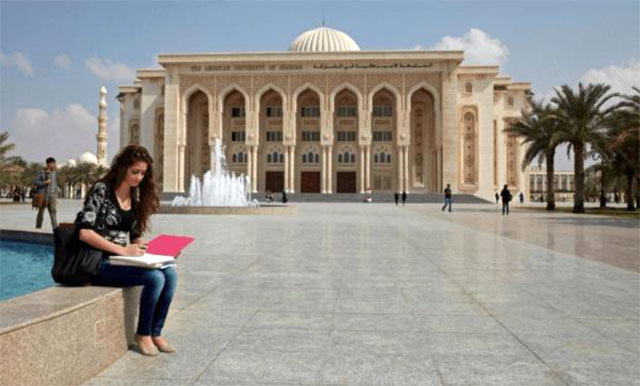Educational boom in the islamic world
Time has passed above us. Above me, too. I follow, as far as I can the events of the ideological space, but I missed education. Let me make up for the backlog and quote the comment of my friend Csaba Varga what coincides with the one of János Káldos that has been published regarding education.
Here you are the details from the latest QS World University Rankings, and among them the TOP 700 Universities:
Malaysia 12 (1 university in the top 100),
UAE 7
Saudi Arabia 6
Kazakhstan 6
Indonesia 6
Turkey 6
Lebanon 5
Iran 4
Pakistan 3
Egypt 2
Brunei 2
Jordan 2
Oman 1
Qatar 1
The next are between 700-1000:
Iraq with 3 universities,
Azerbaijan with 1 university,
Bangladesh with 2 universities,
Bahrain with 1 university,
Kuwait with 1 university,
Malaysia with 8 further universities,
Indonesia with 4 further universities,
Pakistan with 4 further universities,
Kazakhstan with 4 further universities,
Egypt with 3 further universities,
Turkey with 4 further universities,
Iran with 2 further universities,
Lebanon with 2 further universities,
Jordan with 2 further universities,
UAE with 2 further universities,
Saudi Arabia with 1 further university.
In other words, there are 111 universities in the Muslim countries among the TOP 1000 universities, which is 11%. It means that 11% of the world's best universities are in Muslim countries. And that proportion is increasing from decade to decade. (including 64 universities in Muslim countries in the TOP 700, compared with only 50 universities in Muslim countries there in 2014).
- It is very clear that Malaysia is far before other Muslim countries: It has 20 universities among the world's top 1000, and even one of the top 100. Indonesia has also come up because, while in 2014, only 3 universities were included in the TOP 700, this year there are 6 and altogether has 10 universities in the TOP 1000. Turkey has 9 universities in the TOP 1000. Pakistan has 7 universities, as well as Lebanon has 7 in the TOP 1000.
- Oil-rich Muslim countries invest heavily in education. Kazakhstan has 10 universities, United Arab Emirates has 9, and Saudi Arabia has 7 universities among the TOP 1000. In fact, 1-1 universities in small states like Brunel, Qatar, Bahrain, Kuwait and Oman are also among the world's top 1000 universities. Of the Caucasus, only Azerbaijan has one university among the TOP 1000. Despite the international sanctions against Iran, 6 of its universities rank among the world's top 1000. And in spite of the decades long civil war and bombardment by alien superpowers, 3 universities of Iraq have been ranked in the TOP 1000.
Of the 54 countries in Africa, only Egyptian universities ranked among the top 1000 in the world, along with South African universities. It is clear from this that both oil-rich and other Muslim countries without oil, attach great importance to education and over the decades, more and more of their universities are among the world's top 1000. The most dynamic development is in the Muslim countries of Southeast Asia, which have overtaken the oil-rich Arab countries (although there is very significant development there). The countries of Turkish nations do not need to be ignored as well, because Turkey, Kazakhstan and Azerbaijan also attach great importance to quality education.

Let's compare our own country and our neighbors in our region:
According to the most recent ranking, there are 6 universities in Hungary of which 4 are in the TOP 500-700 place and 2 are in the TOP 700-1000. No Hungarian university has entered the TOP 500 now. (Croatia, Serbia, Bulgaria are ranked with 1-1 university in TOP 700-1000, Romania is ranked with 2 universities in TOP 700-1000, Slovakia has 3 universities in the TOP 700-1000, Ukraine has 1 university in the TOP 500, 2 universities in TOP 500-700 and 3 universities in TOP 700-1000, Greece 1 university in the TOP 500, 2 universities in the TOP 500-700 and 3 universities in the TOP 700-1000, Slovenia with 1 university in the TOP 500-700 and 4 universities in the TOP 700-1000).
In 19 Muslim countries, 111 universities rank among the top 1000 in the world (QS World University Rankings). It is not true at all that Muslim countries do not attach importance to high-quality education. We see that while there were no universities in many Muslim countries during the colonial period, except of a few black African countries there are universities in every Muslim country, and 11% of the world's most prestigious universities are already in the Muslim countries (111 universities in the TOP 1000). The number of universities in the Muslim countries has been increasing for decades in the TOP 1000.

If you analyze these numbers, you will find out what a crowd of highly educated people will flood the Islamic world. I do not believe that they will all fight for the cause of Islam. Money is a much bigger directing power now than Islam. But I do believe that we have many works to do regarding the Islamic education of the next generation. Apparently, there has already begun the process of setting up the spectacular Islamic image of the modern age, including Hollywood-like scenes. We hope that.
However, a conclusion can be drawn. It'd be a mistake to classify education according to religious terms. Allah will have a say in this. There is no correlation between the number of universities and the Christian, Muslim, Buddhist or other traditions of the region. The need for skilled labor and related training are better explained by economic processes than local religion. In this context, we can see that Moroccan, Tunisian, Syrian and other cities, which are the cradles of Islamic culture, are not decisive in terms of education today.
As for the traditional Islamic universities, Al-Azhar, Madinah University, Umm Al-Qura, Ez-Zitouna, AlQarawiyyin etc. are the centuries-old, millennial depositories of the classical doctrines that Umma and humanity need. In their present form however, I regard them as museums presenting Islamic thinking. The doctrines of Islam are immutable, and they are suitable for teaching them. The part of Islam that needs to be adapted to the age and place is not done by these institutions. Neither these nor others and this is one of the unresolved tasks of the current Muslim thinking. The fatwas released occasionally do not provide a system-level solution.

… Allah will rise up, to (suitable) ranks (and degrees), those of you who believe and who have been granted (mystic) Knowledge. And Allah is well- acquainted with all ye do. (Quran 58:11)



















